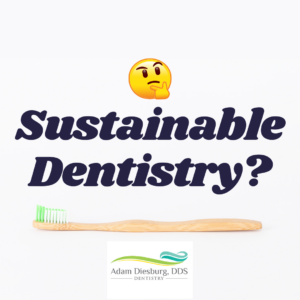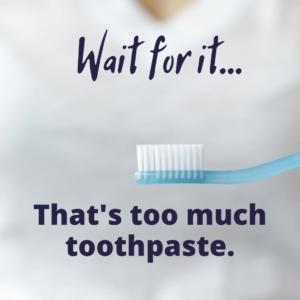You know it’s important to care for yourself when you’re pregnant. You’ve thought about what you should be eating, how much exercise you’re getting, how much you are sleeping at night. You are finding the right balance between making sure you stay healthy and ensuring the right environment for your growing baby. But what about your teeth?
“Pregnancy is a time in a woman’s life when her teeth, and especially her gums, can become vulnerable to issues she has never experienced before,” says Dr. Adam Diesburg. “It is a time to pay extra attention to what is going on in the mouth and to make sure you are taking all of the right precautions to keep your mouth healthy.”
Before you get pregnant
There used to be an old wives’ tale that you lose a tooth for every child that you have. But the truth is that women who have healthy teeth before they get pregnant are much less likely to experience any problems with their teeth during pregnancy. If you are planning to get pregnant, include regular tooth care in your daily routines to set good patterns. Continue these habits after you get pregnant, afterwards, and, as your children grow, teach them to do the same.
“The healthier the mom’s mouth, the healthier the kids’ mouths are going to be,” Dr. Diesburg says.
1. Brush your teeth in the morning after breakfast and in the evening before you go to bed
2. Floss daily between your teeth
3. Visit your dentist for regular check-ups and cleanings
Eating calcium-rich foods will also help your teeth and your bones retain their structure. It is also a good idea to begin taking prenatal vitamins well ahead of getting pregnant.
Pregnancy and your teeth
It is not uncommon for women who have never had issues with their teeth to develop problems when they are carrying a child.
“We keep a special lookout for teeth when our patients become pregnant,” Dr. Diesburg says. “Periodontal disease can set in even with people who have never had a cavity.”
Teeth become vulnerable for a variety of reasons during pregnancy:
1. Craving more sugary foods and snacking
Talk to your doctor and OB/GYN or midwife about what you should be eating and try not to snack on sugary candy and food. But if you do find yourself reaching for something sweet, or reaching more often for food, be sure to brush your teeth more frequently or rinse with water afterwards
2. Frequent vomiting associated with morning sickness
If you find yourself vomiting frequently in the early months of pregnancy, you’ll need to brush your teeth more often to remove the acid from your teeth. Right after you vomit, rinse your mouth out with water. But wait a few hours to brush, because your teeth are susceptible to abrasion and erosion after vomiting.
3. Gum programs caused by pregnancy hormones
Pregnancy hormones makes gum react more aggressively and become more inflamed when covered with bacteria. You can prevent gum disease by continuing good brushing and flossing habits.
4. Retching while brushing
Many woman find that brushing is difficult when they are nauseous. If it’s the taste of the toothpaste, try other flavors or brands. You can also brush without toothpaste if you can’t stomach it. If you absolutely can’t get anything in there, you can use a flouride rinse, but that will not keep your teeth healthy alone.
Helping baby by brushing
Plus, when you take care of your teeth, you’re also taking care of your growing baby. Researchers have found a link between a pregnant women’s advanced periodontal disease — or disease of the gums — and an increase in the risk of pre-term babies. In fact, an estimated 18 out of every 100 babies born pre-term were premies because of a mother’s advanced periodontal disease.
What to do if you’re having problems
Always be sure to let your dentist know you are pregnant. If you are pregnant and find that your gums are becoming more sensitive, bleeding, if you develop a pyogenic granuloma (an inflamed bump on your gums) see your dentist right away.
Dr. Diesburg may recommend that you get a dental cleaning or that you rinse with a special anti-microbial wash to use while pregnant. He and his team can also counsel you on measures you can take to get your gums to calm down.
“Prevention is best, but if you’re having problems our goal is to limit them until you have your child and your hormones can normalize again,” Dr. Diesburg explains.




